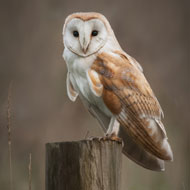
Charity aims to create and restore ‘priority’ habitats
The National Trust has set-out plans to make more than 50 per cent of its farmland ‘nature-friendly’ by 2025.
The organisation aims to create 25,000 hectares - equal to 33,000 Premier League football pitches - to help reverse the decline in wildlife on its land.
“Our charity was founded to protect our natural heritage and we believe we should be playing an active role in reviving it – by doing what we can on our own land,” explained Peter Nixon, director of land, landscape and nature at the National Trust.
"Nature has been squeezed out to the margins for far too long. We want to help bring it back to the heart of our countryside," he continued.
"Birds such as the cuckoo, lapwing and curlew are part of the fabric of our rural heritage. But they’ve virtually disappeared from the countryside. We want to see them return to the fields, woods and meadows again, along with other wildlife which was once common and is now rare.”
The National Trust aims to create and restore ‘priority’ wildlife habitats on 10 per cent of its land. They include habitats like chalk grassland and arable field margins - selected by the government as threatened and in need of help.
The charity will also plant more hedgerows, which act as ‘wildlife corridors’ for birds and bats, establish more lowland meadows and create wetlands where appropriate.
For the plans to succeed, the National Trust will work in partnership with its 1,500 farm tenants to explore how they can make improvements together.
'The future of farming and the environment are inextricably linked – they are reliant on the other to succeed. So, it’s not a case of supporting one, at the expense of the other. We want both to thrive,” said Peter.
Welcoming the announcement, Marian Spain, chief executive of charity Plantlife, called the plans a 'bold commitment'.
George Dunn, chief executive of the Tenant Farmers' Association, added: “Farm tenants will be heartened by the National Trust's clearly expressed position that good environmental management in the countryside cannot be divorced from the achievement of productive and sustainable farming.”



 The veterinary mental health charity Vetlife is inviting the veterinary community to join it for a sponsored cold-water dip.
The veterinary mental health charity Vetlife is inviting the veterinary community to join it for a sponsored cold-water dip.